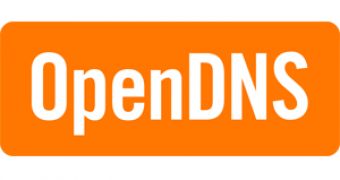Google and OpenDNS are announcing that a joint initiative to speed up the internet by connecting users to the servers nearest to them has gone live. Those using OpenDNS and Google Public DNS will immediately feel the benefits of the technology.
The so-called Global Internet Speedup, is backed by Google, OpenDNS and several content delivery networks (CDNs) are part of the initiative, but others may join.
The idea is to better pair a user with data centers and servers near them. Currently, big sites which have data centers in several locations or use CDNs, use the DNS provider's IP to determine a user's location.
This works most of the time, since most connections use the default DNS provided by the ISP, which, most likely, is in the same region as the user.
However, this fails using custom DNS services, such as Google Public DNS or OpenDNS, which may connect users to a DNS server in the US even if they're from another continent.
The Global Internet Speedup aims to change this, by forwarding part of a user's IP address. The last digits are not sent, so the data forwarded is not enough to pinpoint the exact user, but it's enough to get a general location.
This data is then used by websites to point users to servers nearer to them, regardless of where their DNS provider is located. Google made the proposal early this year and the partners have been talking about the initiative for longer than that.
CDNs Bitgravity, Cloudflare, Comodo, CDNetworks, DNS.com and Edgecast are participating. Akamai and Limelight Networks, the two biggest CDNs are not part of the initiative, for now.
"Google is committed to making the Internet faster - not just for our users, but for everyone," Dave Presotto, distinguished engineer at Google, said.
"We will do that any way we can, by improving protocols, browsers, client software, and networks," he added.
"We're very excited to team with Google and the world's leading CDNs on such a significant improvement to the speed of the Internet," OpenDNS CEO David Ulevitch, said.
"The initiative we've partnered on is based on open standards that any other network can adopt, making this technology available to anyone," he said.

 14 DAY TRIAL //
14 DAY TRIAL //